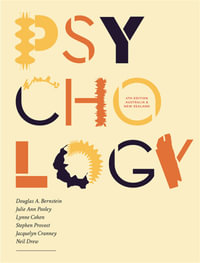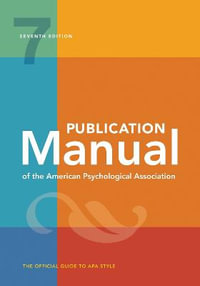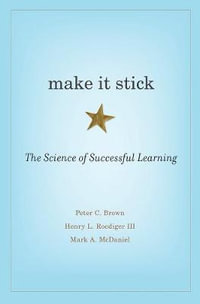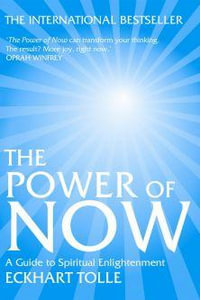We feel therefore we are. Conscious sensations ground our sense of self. They are essential to our idea of ourselves as psychic beings: present, existent, and mattering. But is it only humans who feel this way? Do other animals? Will future machines? To answer these questions we need a scientific understanding of consciousness: what it is and why it has evolved. Nicholas Humphrey has been researching these issues for fifty years. In this extraordinary book, weaving
together intellectual adventure, cutting-edge science, and his own breakthrough experiences, he tells the story of his quest to uncover the evolutionary history of consciousness: from his discovery of blindsight after brain damage in monkeys, to hanging out with mountain gorillas in Rwanda, to
becoming a leading philosopher of mind. Out of this, he has come up with an explanation of conscious feeling - 'phenomenal consciousness' - that he presents here in full for the first time. Building on this theory of how phenomenal consciousness is generated in the human brain, he turns to the morally crucial question of whether it exists in non-human creatures. His conclusions, on the evidence as it stands, are radical. Contrary to both popular and much scientific opinion, he argues that
phenomenal consciousness is a relatively recent evolutionary innovation, present only in warm-blooded creatures, mammals and birds. Invertebrates, such as octopuses and bees, for all their intelligence, are in this respect unfeeling zombies. And for now, but not necessarily for ever, so are man-made
machines.
Industry Reviews
Sentience is full of provocative ideas, as well as lively anecdotes from decades of pondering these issues. Humphreys thesis offers a great deal to think about. * Philip Ball, New Scientist *
4* Review: "bold, brilliant, honest" * Charles Foster, Fortean Times *
Humphrey's arguments are both plausible and lucid, the product of exhaustive research and decades spent weighing the possibilities...a stimulating exercise in experiment and speculation. * , Kirkus Reviews *
an intriguing journey...that stimulates questioning * Jonathan Cowie, Concatenation *
A compelling treatise on the evolution of consciousness from one our finest psychologists. Humphrey combines a fascinating, often surprising, and occasionally hilarious scientific autobiography with a raft of well justified ideas about what it takes for an organism to be sentient. His excellent book will challenge you to think about nature's deepest and most personal mystery in a new and thoroughly enlightening way. * Anil Seth, author of Being You *
It takes a special kind of person to write illuminatingly about consciousness -- a person who is not only steeped in cognitive science, biology, and philosophy, but also has a fertile imagination, an openness to new ideas, and a sensitivity to the richness and variety of experience in humans and other animals. Nicholas Humphrey is such a person, and in his new book he cements his claim to be one of the most insightful writers on this notoriously difficult topic. Sentience is a beautifully written book, full of engaging vignettes, original ideas, and intriguing suggestions. It will fascinate general readers and inspire academic researchers. * Keith Frankish, author of Mind and Supermind *
Nobody has thought more deeply, originally or poetically about animal sentience and the notion of consciousness. In this bold and persuasive book he lays out how he came to his conclusions in a lifetime of studying animals and human minds. * Matt Ridley *
Nick Humphrey has been a hugely influential figure across the fields of experimental psychology, neuroscience, and philosophy for half a century, and, for my money, is the most inventive psychological thinker of his generation. Taking a long view of his entire scientific career and peppered with brilliant anecdotes, Sentience crystallizes Humphreys latest thinking on the evolution of consciousness. There are many dazzling insights on offer but, for me, the most eye-catching development is the formulation of a framework for determining which other animal species are sentient or even in possession of a sense of self. How staggeringly bold! Imagine what a shock wave such a test would generate, scientifically and philosophically, of course, but also out into the political sphere. * Paul Broks, author of Into the Silent Land: Travels in Neuropsychology and The Darker the Night, the Brighter the Stars: A Neuropsychologists Odyssey Through Consciousness *
Wonderfully approachable... with a writing style somewhere between a deep conversation and a thought process... Reading this book was a real pleasure. * Brian Clegg, Popular Science (UK) *
This book serves as an illuminating starting point for those intrigued by the question of whether machines can attain sentience. * Jurgita LapienytAE, Cybernews *
Nicholas Humphrey's beautiful theory of mind... [how] consciousness evolved to make us feel that life is worth living. * Nick Romeo, The New Yorker *
bold, brilliant, honest... [Humphreys'] directness and philosophical sophistication are unusual in the crowded and noisy neuroscientific marketplace... [An] important contribution to the debate. All future writers on consciousness will need to take Humphrey's speculations seriously. It is no less significant because it's written breezily and accessibly. I know of no better survey of the big questions in discussions about consciousness. * Charles Foster, Fortean Times *
The kind of book to keep and read more than once. * Riadh Abed and Paul St John-Smith, British Journal of Psychiatry *
Nicholas Humphrey is a fine thinker and a lucid writer. * Alex Gomez-Marin, Journal of Consciousness Studies *
























